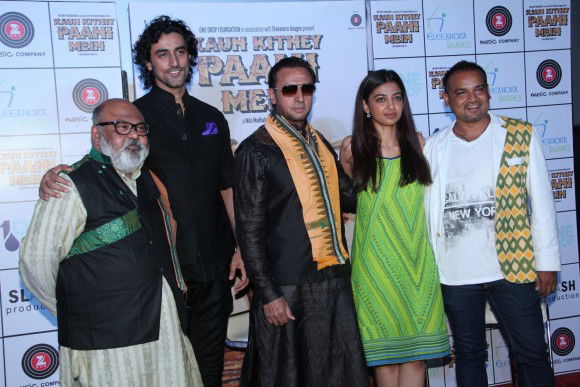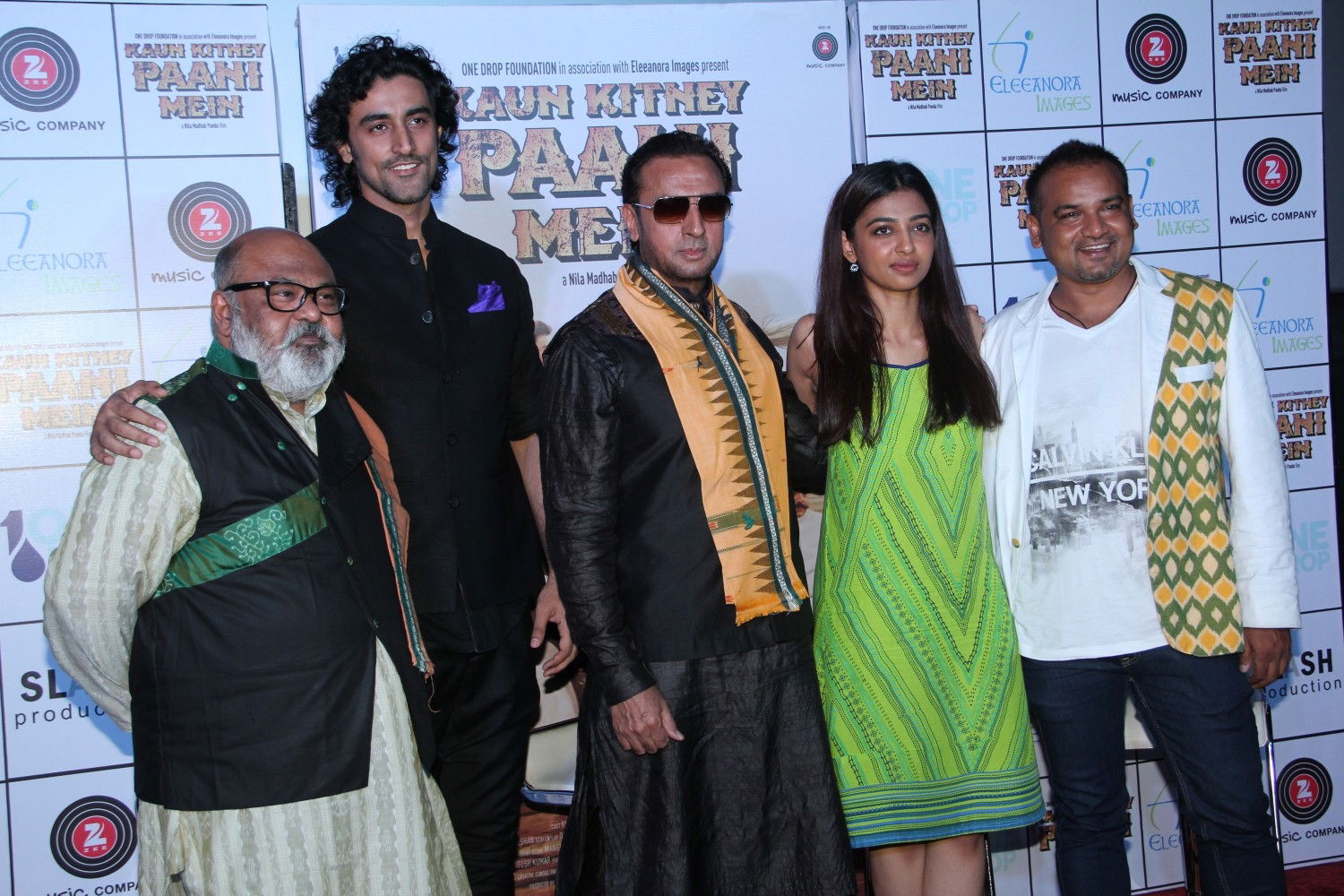Filmworld
'Kaun Kitne Paani Mein' - Tale of changing dynamics

Film: “Kaun Kitne Paani Meinâ€;
Language: Hindi; Cast: Kunal Kapoor, Radhika Apte, Gulshan Grover,
Saurabh Shukla and Hema Singh; Director: Nila Madhab Panda; Rating:
**1/2
Based in post-independent India, in rural Odisha, “Kaun
Kitne Pani Mein†is a socio-political satire set against the backdrop of
water scarcity. It speaks of how tables turn with constant change in
situational dynamics. The phrase which forms the title of this film, is
apt for this fable.
While the film deals with the class and caste
system and the changing undercurrents between the ruler and his
subjects, it is a conniving, complex and manipulative tale laced with
sub-plots of father-son bonding and romance.
At the onset we are
informed that there are a long-standing differences between the
villagers of ‘Upri Gaon’ and the ‘Bairi’ (lower caste).
Living in
Upri Gaon, the once rich Raja Braj Kishore Singh Deo (Saurabh Shukla),
is the last of the feudal lords who is now living in penury. His land
has been hit by draught for many years and he is now keen to sell his
land.
Unfortunately, no one is willing to buy it. His son, the
Rajkumar (Kunal Kapoor) returns from the city only to curse his father
and his luck.
On the other hand, the land of the Behiris, is
flourishing under the leadership of a wannabe politician, Karu Phelwan
(Gulshan Grover). With water there, the place is fertile and green and
consequently the people are happy souls. In factm he states, "Raja, woh
jiske paas paani haiâ€.
Raja Braj convinces his son with, "Main
jaat nahin, halaat manta hoon†to manipulate his way into the folds of
the low-caste people in order to get water from their end. This forms
the crux of the tale.
Saurabh Shukla essays Raja Braj's character
with sluggish ease. It is amusing to watch; his servant, ‘sevak’
literally dress him up, him slouching with his lazy demeanour, drinking
and basking in past glory.
Kunal Kapoor as the Rajkumar with a
progressive and malleable mindset, is charming. He oscillates between a
conniving son and romantic with equal grace. He romances Paro (Radhika
Apte), Karu Phelwan's daughter and their on screen chemistry is
palpable.
Radhika shines as Paro, but unfortunately since the
tale is packed with too many issues, their romance does not get enough
screen time and hence appears perfunctory.
Gulshan Grover walks
through his role as Karu Phelwan. The rest of the supporting cast
members are natural and you do get transported to rural Odisha.
On
the technical front, the script written by director Nila Madhab Panda
and Deepak Venkateshan begins on a boring note. The first act, loaded
with a preachy voiceover exposition layered over 2D graphics, makes the
film look amateurish. But as the narration progresses, you get involved
with the characters and are hooked.
Humour is strewn sporadically
in the form of rustic witty dialogues. Unfortunately, the inconsistency
in the accents and the dialect maars the consistency of the flow.
With
decent production values, the locales and setting look natural and are
efficiently captured by Subranshu Das's cinematography.
The
background score and songs merge elegantly into the tale. But it is the
beautifully choreographed folk dance on the song "Rangapati, Rangapati"
which stands out.
Overall, the film has the look, feel and charm of a bygone era.




































